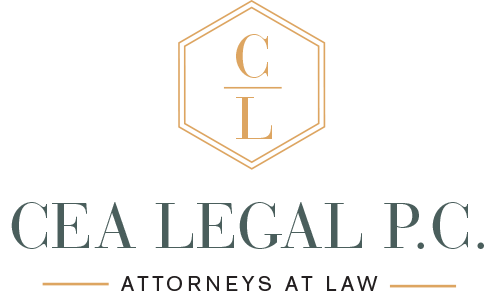The EU Markets in Crypto-Assets (MiCA) law
EU Approves Regulatory Framework for Crypto Assets
Lawmakers in the European Union have approved two new crypto-related laws. The Markets in Crypto-Assets (MiCA) law requires licensing for crypto wallet providers and exchanges operating in the EU, making it the first major jurisdiction in the world to implement such a comprehensive crypto law. Another law, the Transfer of Funds regulation, mandates crypto operators to identify their customers to prevent money laundering. The votes in favor of these laws were overwhelming, with only a few lawmakers abstaining. The new laws also require issuers of stablecoins to hold adequate reserves.
MiCA is the world's first regulatory framework for crypto assets, providing coverage to both issuers and service providers. Its primary objective is to safeguard the interests of consumers and investors while promoting financial stability and innovation. This regulation is set to take effect between mid-2024 and early 2025, positioning Europe as an appealing region in the cryptocurrency market.
MiCA governs operations involving "crypto-assets." The term crypto-asset is broadly designated as any "digital representation of a value or a right which may be transferred and stored electronically, using distributed ledger technology or similar technology.”
MiCA Subcategories and Requirements for Issuers
MiCA introduces three subcategories of crypto-assets that carry varying levels of risk and are subject to specific requirements:
The first subcategory is "Electronic money tokens" or "e-money tokens" (EMTs), which aim to maintain a stable value by referencing the value of an official currency. EMTs are electronic substitutes for traditional coins and banknotes and are intended for payment purposes;
The second subcategory is "Asset-referenced tokens" (ARTs), which also seek to maintain a stable value but by referencing other values or rights, such as a basket of fiat currencies or commodities.
The third subcategory encompasses all other crypto-assets that are not EMTs or ARTs, including non-pegged payment tokens like Bitcoin or Ether and utility tokens that grant access to specific goods or services.
Under MiCA, EMTs and ARTs may be designated as “significant” by the European Banking Authority (EBA) based on criteria like the number of holders, market capitalization, issuer status, or financial system interconnectedness. Issuers of “significant” ARTs and EMTs must comply with more stringent rules, such as capital requirements, and are supervised by the EBA instead of national authorities.
Before offering a token to the public or listing it on a trading platform, the issuers of all three types of crypto-assets are required to produce white papers. These documents function as a type of prospectus for crypto-assets and provide potential holders with information about the features of the crypto-asset being issued. In addition to details about the issuer, the crypto-asset project or token, risks, and the rights and obligations associated with the crypto-asset, white papers must also disclose the negative environmental and climate-related effects of the consensus mechanism employed to issue the crypto-asset.
Authorized credit institutions or e-money institutions are the only entities permitted to offer or list EMTs. Before doing so, they must provide prior notification to their supervisory authority and publish the necessary white paper.
Issuers of ARTs must be based in the EU and not only provide notification but also obtain prior approval from the regulatory authority for the required white paper before publishing it.
MiCA imposes a comprehensive set of obligations and regulations on issuers of ARTs, encompassing transparency, governance, and capital requirements. In contrast, issuers of EMTs must only safeguard received funds. ART issuers must maintain a reserve of assets, as investors in EMTs and ARTs have the right to redeem their tokens at any time. To avoid liquidity risks resulting from a large number of simultaneous redemption requests, the reserve must always be equal to the total value of outstanding holders' claims.
MiCA imposes disclosure, transparency, and governance rules for crypto-assets that are not ARTs or EMTs. Issuers of these crypto-assets are not required to obtain prior authorization before offering them to the public or listing them on a trading platform. Instead, they are required to notify and publish the white paper in advance. It is worth noting that retail investors have the right to withdraw from the purchase of such tokens on the primary market within 14 days if the crypto-asset was not yet traded on a trading platform at the time of purchase.
Requirements for Crypto-Asset Service Providers
Additionally, MICA regulates entities providing “crypto-asset services”. The ten services defined as "crypto-asset services" under MICA are:
Custody and administration of crypto-assets on behalf of third parties
Operation of a trading platform for crypto-assets
Exchange of crypto-assets for fiat currency
Exchange of one or more crypto-assets for another
Execution of orders for crypto-assets on behalf of third parties
Placing of crypto-assets
Reception and transmission of orders for crypto-assets
Advisory services related to crypto-assets
Issuance of crypto-assets, including initial coin offerings (ICOs)
Participation in the creation of decentralized autonomous organizations (DAOs)
Impact of MiCA on Crypto Market Development in Europe
To provide crypto-asset services in the EU, one must obtain prior authorization as a "crypto-asset service provider" (CASP) and have a presence in the EU. CASPs are subject to a comprehensive set of general and service-specific regulations, including governance, capital/insurance, and transparency requirements. One such transparency requirement is to provide information about the adverse environmental and climate-related impacts of the consensus mechanism used to issue the crypto-asset.
MiCA is poised to provide a more consistent regulatory approach and ultimately simplify the operations of European crypto services. Over time, this could potentially attract companies from jurisdictions where their crypto-related activities are not recognized or prohibited outright, which is what the current environment looks like in the United States under the Gary Gensler’s Securities and Exchange Commission.


